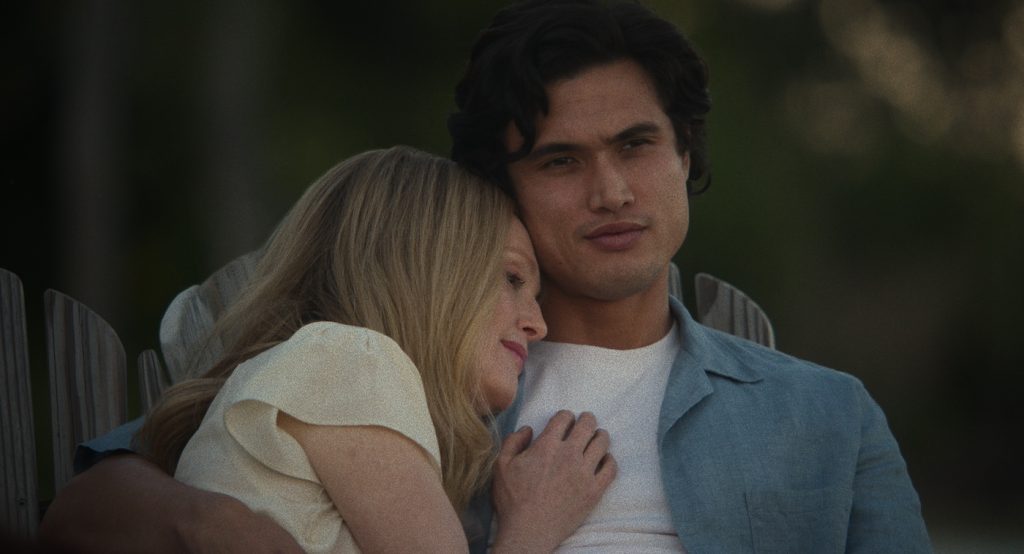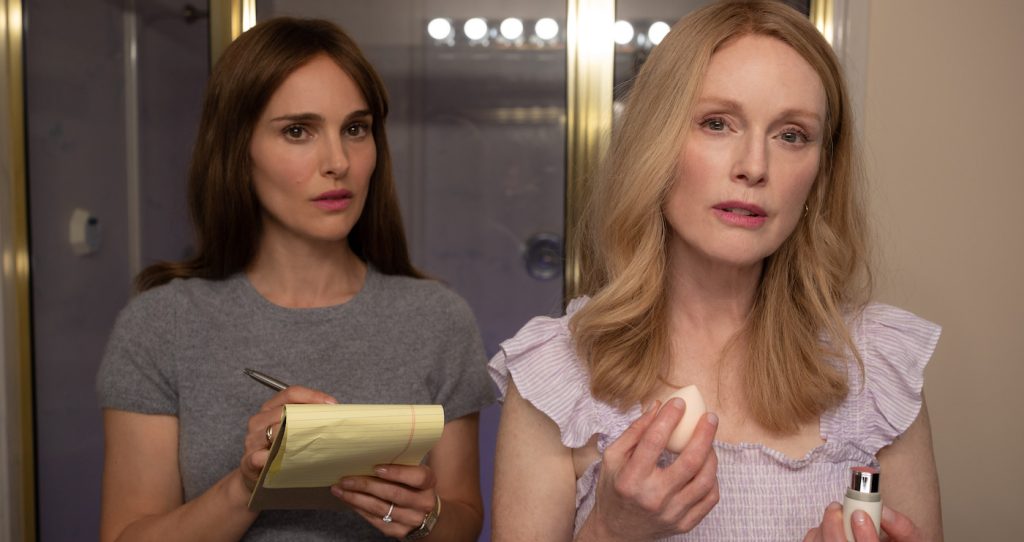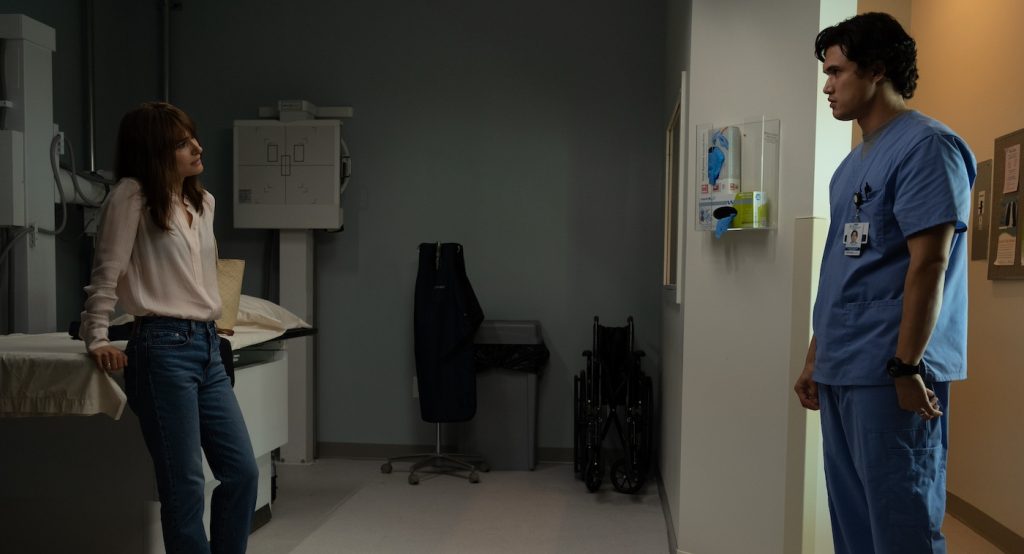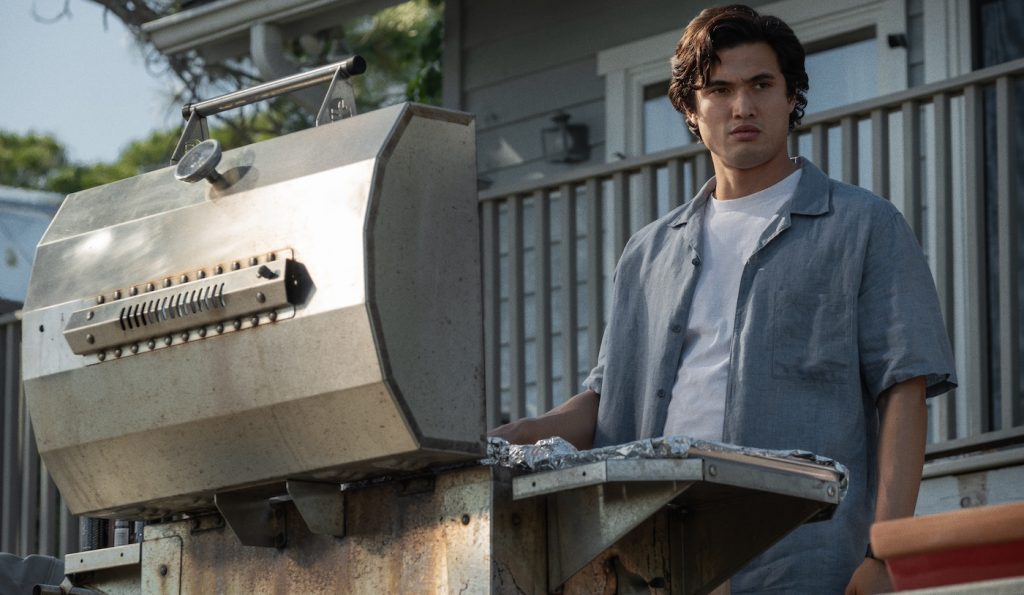“May December” Editor Affonso Gonçalves on Playing With Identity in Todd Haynes’ New Film
It has been a very busy year for Brazilian-American film editor Affonso Gonçalves, from last fall’s twisted psychological drama Don’t Worry Darling to this year’s doppelgänger medical chiller Dead Ringers and queer wrestling biopic Cassandro. Last week, he returned with director Todd Haynes’ quietly disturbing psychological drama May December.
They have developed a shorthand after working with Haynes on six projects — including the Oscar-nominated Carol and the Emmy-winning Mildred Pierce. To focus on the demands of filming, Haynes does not watch dailies while he is shooting unless there is a technical problem or a performance issue, choosing to rely on his go-to editor instead. “He doesn’t like to watch the dailies, so I’m basically his eyes and ears while he is shooting. I’m cutting as they’re shooting, so by the time they finish, I have a cut ready to go,” Gonçalves reveals. “Then, once he’s done, he will watch all the dailies on DVDs by himself and puts together a version of the film that he has in mind. And then, we combine those and make a third and final version of the movie.”
Over the weekend at Deadline’s Contenders Film L.A., Haynes remarked that the film is about “the stories we tell ourselves” in a desperate attempt “to survive our lives.” Loosely based on the Mary Kay Letourneau case that was major 1990s tabloid fodder, the film follows 59-year-old Gracie (Julianne Moore), a housewife who appears happily married to 36-year-old husband, Joe Yoo (Charles Melton), and their three college-age kids.
The façade of domestic bliss begins to crack with the arrival of TV actress Elizabeth (Natalie Portman) — who will be playing Gracie in an upcoming indie film — when we learn that the relationship began when Joe was just 13 years old (they met at a pet store) and one of their children was born behind bars. Hoping to launch her film career, Elizabeth will stop at nothing to nail her role as she seeks to ingratiate herself into the family’s lives, reawakening old wounds and traumas in her wake.
Cinematic influences incorporated into the film include Ingmar Bergman’s Persona, Autumn Sonata, and Winter Light, as well as some of Jean-Luc Godard’s repertoire. “We don’t just talk about how we’re going to cut the film; there’s so much discussion about other films and ideas on sound and music, too. So, it’s always fun for me because I end up learning so much,” Gonçalves shares.
But it was Michel Legrand’s score for the 1971 Joseph Losey period drama, The Go-Between, that made an immense, singular impact. “The music was something Todd had in mind even before we started shooting. He wrote down in the script which part of the [1971 original] soundtrack should be used for each scene,” Gonçalves recalls. The jarring, portentous, and sometimes melodramatic music was exactly what Haynes was looking for to convey the awkwardness, suspense, and sense of doom that he often played it on set to establish the tone.

Legrand’s music further imbues the film in the sense that composer Marcelo Zarvo’s arresting score is adapted from the 1971 existing soundtrack, which also meant that Gonçalves already had an existing score to work with when he was cutting the film. “I had to kind of reverse-engineer the principles of editing because I knew I had to use the music. Usually, you would maneuver the music to fit your cutting. But in this case, I knew the music needed to be at a certain time and used in a certain way,” he says. “When Marcelo came in, he adapted it to make it a little more modern and very specific to the tone and pace of this film.”

When Elizabeth first meets the family at their house in Savannah, Georgia, after a family BBQ, the adults all gather around the dinner table as she assures them that all she wants is to execute a faithful portrayal of their story so that the Yoo family can finally “feel seen and known.” “So much of that scene is character setup, how they function together. It’s a lot of dialogue between Elizabeth and Gracie, but Joe is there too, listening and reacting to what the women are talking about,” Gonçalves says, adding, “We probably cut that scene the most, try to give enough time for everybody. Sometimes, you understand someone just by their reactions. There is so much subtext in that scene; you can almost play it without sound, and you understand how they relate to each other. So, it was pivotal for us to get it right.”

As Elizabeth injects herself further into Gracie and Joe’s lives, she begins to metamorphize into her “research” subject, soon mirroring Gracie’s every gesture and posture, even adopting her lisp. At one point, she asks Gracie to teach her how to apply her makeup, with both women standing in front of a bathroom mirror. “That was shot in one continuous shot. There’s an energy shift in that scene because they’re both pushing each other. And then Gracie becomes slightly annoyed; she gets the power when she applies the makeup onto Elizabeth, which makes her [Elizabeth] super uncomfortable,” Gonçalves notes. “We see the power dynamics between them. Elizabeth is getting a little too close to the fire in a way, while Gracie is trying to keep her distance but also show her that she is in control of what information she decides to share. It’s subtle. The way Julianne touches Natalie’s face when she is doing the makeup – the film is so much about boundaries.”


The long-buried fissures in the marriage finally rupture when Joe bonds with his son while smoking a joint on the roof of their house. “That was an amazing scene between Joe and his son. From that point on, I think he’s very grounded in his feelings and how much he’s been impacted. He never had time to deal with everything that has happened, and now, he will be an empty nester. And how is that future gonna look like?” Gonçalves reveals the 20-plus years of confusion and trauma all gushing into this moment for Joe. “So that scene is pivotal for Joe as a character, and we really worked hard to get it right.”

Channeling the technique in Persona, there were several key scenes where the characters, in direct address to the lens, confront themselves and each other in mirrors. “Todd wanted that to feel a little uncomfortable, like are they looking at us or are they looking at each other? Because they weren’t actually looking at a mirror, there were no mirrors there. They were actually looking at the camera,” says Gonçalves of the film’s ingenious use of mirrors to explore the themes of self-reflection and identity. “It’s that uncomfortable feeling of somebody staring at you for maybe a little longer than they should. They’re really looking at each other and trying to understand the other person: Elizabeth is trying to become Gracie, and Gracie is trying to understand what Elizabeth wants. So, it’s kind of very unsettling and unnerving,” he elaborates.
One of these key scenes was Elizabeth’s second monologue in the film, where Portman performs as Gracie reading the only letter between the lovers that Joe had managed to save from all those years ago. “That was done in one shot, just different takes. There was no coverage. That was always what Todd had planned [for that scene], and Natalie just nailed it beautifully.”
May December is in theaters now and will stream on Netflix beginning on December 1st.
Featured image: May December, L to R: Julianne Moore as Gracie Atherton-Yoo with Natalie Portman as Elizabeth Berry. Cr. François Duhamel / Courtesy of Netflix



